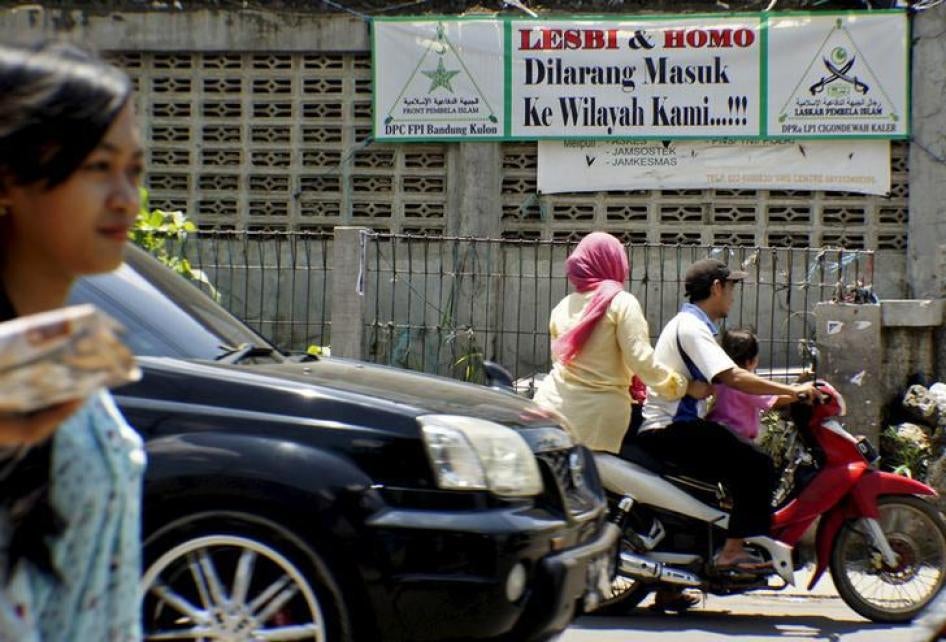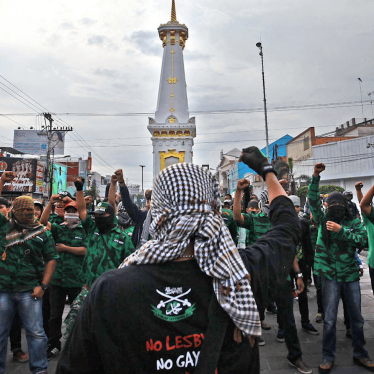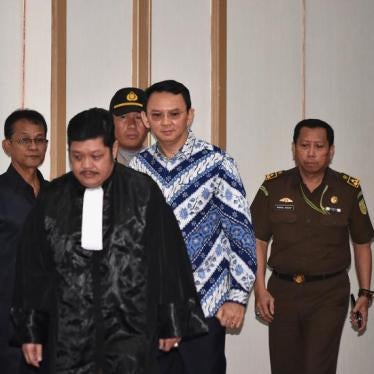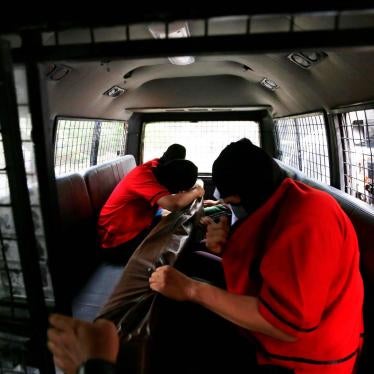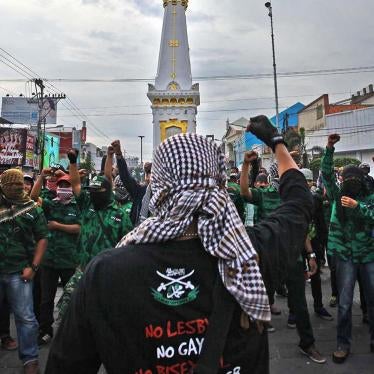His neighbors had been watching him for weeks.
Twenty-year-old Muhammad (a pseudonym) rented a room in Banda Aceh, the capital of Indonesia’s Aceh province. On March 28, 23-year-old Hanif (also a pseudonym) arrived at his flat. They didn’t know they were being watched. Three hours later, the neighbors barged into the flat, filming the naked men with their camera phones. These vigilantes called the young men “dogs,” and phoned the local Sharia (Islamic law) police. The authorities arrived, arrested, and detained the pair—young men who, if the prosecutor gets his way, will be the first Indonesians ever to receive public flogging for homosexuality.
The prosecutor this week recommended 80 lashes, 20 shy of the maximum the law permits because the men were young and admitted their guilt. This is not a compassionate sentence—but a grotesque reflection of how the enforcement of Aceh’s laws ruin lives.
Everything—from the snooping, to the Sharia squad tip-off, to the flogging sentence—is in accordance with the law in Aceh. Aceh is a devoutly Islamic province in the world’s largest Muslim country, that likes to proclaim itself moderate. It is led by a president who touts diversity and pluralism, but who has failed to back that rhetoric with protection for the rights of beleaguered minorities.
Aceh’s position within the republic is unique. A 30-year separatist conflict seeded deep distrust between Acehnese and the national government. The 2004 Boxing Day tsunami led to a ceasefire that soon ended the war but wrought unprecedented devastation from which the province has not recovered. The 2005 peace agreement ensured Aceh’s “special status,” making it the only one of Indonesia’s 34 provinces that can legally adopt bylaws derived from Sharia (though such provisions, modeled on Aceh’s, are spreading nationwide).
Over the past decade, Aceh’s parliament has gradually adopted Sharia-inspired ordinances that criminalize everything from non-hijab-wearing women, to drinking alcohol, to gambling, to extramarital sexual relations. The province’s 2014 Criminal Code bars both male and female same-sex behavior. Under its Sharia ordinances, Aceh imposed cane lashing against 339 people in 2016; a punishment recognized under international law as torture.
To make matters worse, local government officials have aggressively stoked homophobia. In 2012, then-Banda Aceh deputy mayor Illiza Saaduddin advocated harsh punishments for homosexuality, telling the media: “If we ignore it, it will be like an iceberg…Even if one case of homosexuality [is] found, it’s already a problem.” The following year, after Illiza was elected mayor, she told reporters that “homosexuals are encroaching on our city.” In February 2016, she announced she would create a “special team” to make the public more aware of the “threat of LGBT” and to “train” LGBT people to “return to a normal life” while posting an image of herself to Instagram holding a handgun and vowing to flush gays out of Aceh.
In October 2015, Sharia police arrested two women, ages 18 and 19, on suspicion of being lesbians for embracing in public, and detained them for three nights at a Sharia police facility in Banda Aceh before sending them to a week of religious rehab. Officers repeatedly attempted to compel the two women to identify other suspected LGBT people in Aceh by showing them photographs of individuals taken from social media accounts.
Despite Aceh’s odious anti-LGBT ordinances, Indonesia has historically been a unique beacon of tolerance for LGBT peoplein Southeast Asia. The country has never—including when it was a Dutch colony until 1945—criminalized adult consensual same-sex behavior. LGBT organizations first opened their doors in the 1980s and operated in a relatively placid environment for decades.
But that tolerance has proven fragile in the face of government-fueled animus. Anti-LGBT incidents across Indonesia have significantly increased since January 2016—in synch with broader rising intolerance of religious minorities. Last year’s LGBT crisis started with vitriolic anti-LGBT rhetoric from officials and politicians and included police raids on suspected gatherings of gay men, and attacks on LGBT activists.
In October, President Joko “Jokowi” Widodo broke his long silence on escalating anti-LGBT rhetoric by saying that “the police must act” against actions by bigoted groups or individuals to harm LGBT people or deny them their rights, and that “there should be no discrimination against anyone.”
In the case of Muhammad and Hanif in Aceh, Jokowi a faces a test of Indonesia’s core national values—what he has often proudly touted as “Islam and democracy going hand in hand.” These young men are two Indonesians who wanted nothing more than to live their lives and have their privacy respected. Now they await a public flogging. A pluralist president like Jokowi should recognize the right thing to do here is to spare these two the rod.

